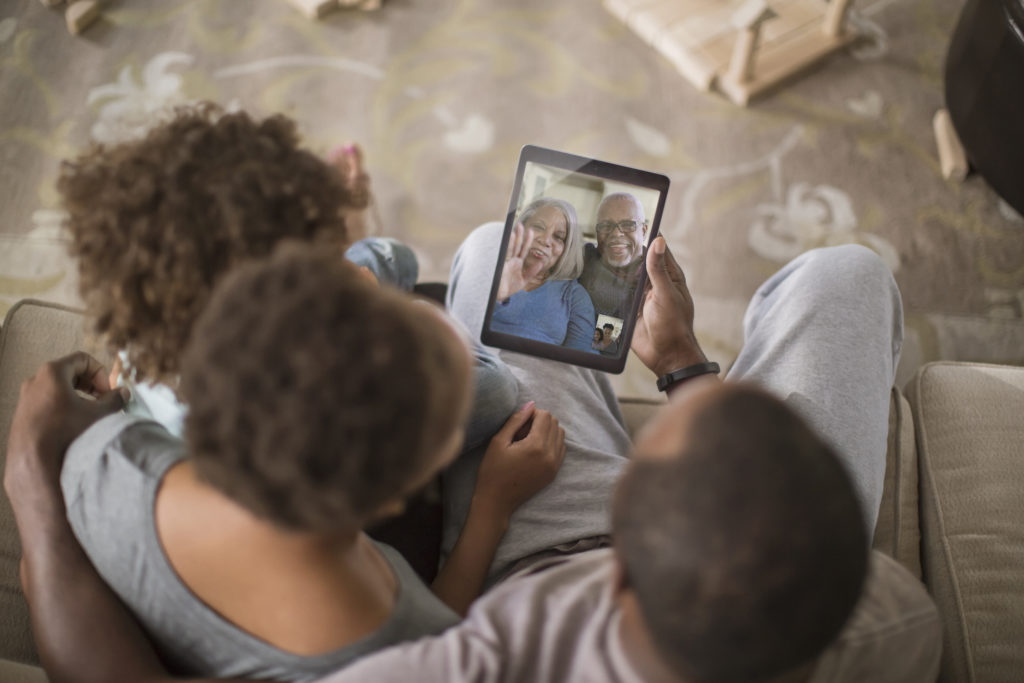By Patrick Cokley and Merrill Friedman
What is it that makes the winter holidays special for you? There are many traditions that all of us across a variety of cultures share – the gathering of family and friends, participation in annual festivities, and a favorite for many — the parade of culturally or traditionally significant foods. (It is no surprise that for many Americans their first New Year’s Resolution is to lose all the weight they put on during the holidays.)
This year, however, our end of the year celebrations are very much hampered by the COVID-19 pandemic and the implications for gathering for the holidays. For many of us, the holidays are more than just food, gifts, and events; they are often a time to rejuvenate ourselves in the presence of family and friends. While gathering and catching up on the events of the year, loved ones who have been away or scattered due to school, jobs, or a host of reasons, typically have a chance to reconnect and recharge our feelings of togetherness. More important than side dishes or gifts, this reconnection is likely what many Americans are most afraid of missing out on this year, and is a definite sticking point for those who wish to throw caution to the wind and just go visiting during the holidays.
The emotional effort that has come with maintaining physical distance has taken a toll on everyone. For families that have always gathered in one way or another during the holiday season, the idea of not being in person brings on a fair amount of anxiety and ‘What If” questions about the next time we can be together, especially considering our older family members and friends. If the last nine months of the pandemic has taught us anything – it is that we have to think clearly about what we want for our emotional and physical health, and how we can fulfill those needs to connect and celebrate remotely. Just like at work, where you consider the essential functions of your job, we must ask, “What are the essential functions of our holiday season for friends, families, and ourselves?”

Family video chatting with digital tablet
- Maintaining Connection with Family – Even though we will not be able to gather together in person maybe we can use social networks to come together and partake in conversations, arguments, jokes, and singing like we may typically do.. We will still need someone to plan and motivate us, and to take responsibility to set up that Zoom meeting, but that could be handled the same way we plan meal times or who will bring side dishes. For the family members who are not comfortable with, or try to avoid technology, this may also mean making plans to call each other, check in, or even up your Seasons Greetings Card game.
- Traditional Food – There will never be a way to replace your auntie’s classic banana pudding or tostones from your abuela, or the Chinese food you gather to enjoy, but a smaller holiday may give you the opportunity to try out some of these recipes on your own. Our families have a whole series of recipes – some to be shared and some to be held, but this holiday season may be a chance for us all to try our hand and make sure that we don’t lose that familial connection.
- Mental Health and wellness for you and your family – The holidays can be a difficult time emotionally for many. We should each plan to take some time to think about expectations for the holiday and plan for the best ways to celebrate and not feel overwhelmed. This may mean setting aside “me” time, asking for help, or accepting the fact that things this year will not be as they “always have been” and that is OK. It may also be the opportunity to embrace the quiet time and do some projects around your home that you have been putting off — or just take time to do something that you love. We also want to keep an eye out for the “holiday blues” and check in with family members and friends to make sure they remember that while we may be physically distanced, we are not alone this holiday season; we are here for each other.
- New Traditions – It occurred to us that many of our current holiday traditions come from the Greatest Generation and Baby Boomers. While we have adapted these celebrations to the 21st Century, many of them came to be during the Depression – a time that was not easy to endure. While it is not the way many of us would have planned it, the COVID-19 pandemic may be the opportunity to create some new lasting traditions that will carry forth to future generations. Perhaps we will come through this experience with a more personal connection to our traditional celebrations that is bolstered with a digital element that allows us to connect from a distance.
Much like every other thing that has happened in 2020, the holidays will not be quite what we expected – and that’s OK. We can still celebrate and bask in the glow of good tidings and cheer – even if that glow is also from the screens of computers, phones, and devices that allow us to remain connected virtually. A little prevention today will lead us to a healthier tomorrow; where we can once again open our doors and welcome in friends and family having prioritized everyone’s health and wellbeing this year so we can ring in the next year together.


